The Wreck of the Edmund Fitzgerald
~Gordon Lightfoot
The legend lives on from the Chippewa on down
Of the big lake they call Gitche Gumee
The lake, it is said, never gives up her dead
When the skies of November turn gloomy
With a load of iron ore twenty-six thousand tons more
Than the Edmund Fitzgerald weighed empty
That good ship and true was a bone to be chewed
When the gales of November came early
The ship was the pride of the American side
Coming back from some mill in Wisconsin
As the big freighters go, it was bigger than most
With a crew and good captain well seasoned
Concluding some terms with a couple of steel firms
When they left fully loaded for Cleveland
Then later that night when the ship’s bell rang
Could it be the north wind they’d been feelin’?
The wind in the wires made a tattle-tale sound
When the wave broke over the railing
And every man knew, as the captain did too
‘Twas the witch of November come stealin’
The dawn came late and the breakfast had to wait
When the gales of November came slashin’
When afternoon came it was freezing rain
In the face of a hurricane west wind
When suppertime came, the old cook came on deck
Saying, “Fellas, it’s too rough to feed ya.”
[Former version:] At seven PM a main hatchway caved in
[Latter version:] At seven PM it grew dark, it was then
He said, “Fellas, it’s been good to know ya.”
The captain wired in he had water comin’ in
And the good ship and crew was in peril
And later that night when his lights went out of sight
Came the wreck of the Edmund Fitzgerald
Does anyone know where the love of God goes
When the waves turn the minutes to hours?
The searchers all say they’d have made Whitefish Bay
If they’d put fifteen more miles behind her
They might have split up or they might have capsized
They may have broke deep and took water
And all that remains is the faces and the names
Of the wives and the sons and the daughters
Lake Huron rolls, Superior sings
In the rooms of her ice-water mansion
Old Michigan steams like a young man’s dreams
The islands and bays are for sportsmen
And farther below, Lake Ontario
Takes in what Lake Erie can send her
And the iron boats go as the mariners all know
With the gales of November remembered
[Former version:] In a musty old hall in Detroit they prayed
[Latter version:] In a rustic old hall in Detroit they prayed
In the Maritime Sailors’ Cathedral
The church bell chimed ’til it rang twenty-nine times
For each man on the Edmund Fitzgerald
The legend lives on from the Chippewa on down
Of the big lake they call Gitche Gumee
Superior, they said, never gives up her dead
When the gales of November come early

 I am indebted to the many friends who share my love of traditional songs and to the many scholars whose works are too many to include here. I am also incredibly grateful to the collector’s curators and collators of Wikipedia, Mudcat.org, MainlyNorfolk.info, and TheContemplator.com for their wise, thorough and informative contributions to the study of folk music.
I am indebted to the many friends who share my love of traditional songs and to the many scholars whose works are too many to include here. I am also incredibly grateful to the collector’s curators and collators of Wikipedia, Mudcat.org, MainlyNorfolk.info, and TheContemplator.com for their wise, thorough and informative contributions to the study of folk music.
I share their research on my site with humility, thanks, and gratitude. Please cite their work accordingly with your own research. If you have any research or sites you would like to share on this site, please post in the comment box. Thanks!
Contents
| "The Wreck of the Edmund Fitzgerald" | ||||
|---|---|---|---|---|
 | ||||
| Single by Gordon Lightfoot | ||||
| from the album Summertime Dream | ||||
| B-side | "The House You Live In" | |||
| Released | August 1976 | |||
| Recorded | December 1975 | |||
| Studio | Eastern Sound Studios, Toronto | |||
| Genre | [1] | |||
| Length |
| |||
| Label | Reprise | |||
| Songwriter(s) | Gordon Lightfoot | |||
| Producer(s) |
| |||
| Gordon Lightfoot singles chronology | ||||
| ||||
| Audio | ||||
| "The Wreck of the Edmund Fitzgerald" on YouTube | ||||
"The Wreck of the Edmund Fitzgerald" is a 1976 hit song written, composed and performed by the Canadian singer-songwriter Gordon Lightfoot to memorialize the sinking of the bulk carrier SS Edmund Fitzgerald in Lake Superior on November 10, 1975. Lightfoot considered this song to be his finest work.[2]
Appearing originally on his 1976 album Summertime Dream, Lightfoot re-recorded the song in 1988 for the compilation album Gord's Gold, Vol. 2.
Lyrics
The song chronicles the final voyage of the Edmund Fitzgerald as it succumbed to a massive late-season storm and sank in Lake Superior with the loss of all 29 crewmen. Lightfoot drew inspiration from news reports he gathered in the immediate aftermath, particularly "The Cruelest Month", published in Newsweek magazine's November 24, 1975, issue.[3] Lightfoot's passion for recreational sailing on the Great Lakes[4] informs his ballad's verses throughout.
Recorded before the ship's wreckage could be examined, the song contains some artistic conjectures, omissions and paraphrases. In later interviews, Lightfoot recounted how he had agonized over possible inaccuracies while trying to pen the lyrics until his lead guitarist Terry Clements convinced him to do what Clements' favourite author Mark Twain would have advised: just tell a story.[5]
In March 2010, Lightfoot changed a line during live performances to reflect new findings that there had been no crew error involved in the sinking. The line originally read, "At 7 p.m. a main hatchway caved in; he said..."; Lightfoot began singing it as "At 7 p.m. it grew dark, it was then he said..." Lightfoot learned about the new research when contacted for permission to use his song for a History Channel documentary that aired on March 31, 2010. Lightfoot stated that he had no intention of changing the original copyrighted lyrics; instead, from then on, he simply sang the new words during live performances.[6]
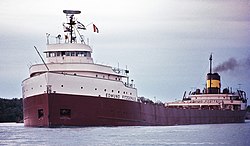
Melody
The melody for the song was later adapted by Bobby Sands for his song "Back Home in Derry". When asked about the similarity and why he didn't pursue copyright infringement, Lightfoot said that the melody was "just an old Irish folk song; an old Irish dirge. I think I took it from that. It's all folk music and it's all out there for everyone to enjoy."[7]
Production
The song was recorded in December 1975 at Eastern Sound,[8] a recording studio composed of two Victorian houses at 48 Yorkville Avenue in a then-hippie district of downtown Toronto. The famous studio was later torn down and replaced by a parking lot.[9]
Pee Wee Charles and Terry Clements came up with "the haunting guitar and steel riffs" on a "second take" during the evening session.[10]
The song was the first commercial digital multitrack recording on the 3M 32-track digital recorder – a prototype technology at the time.[11]
Chart success
Lightfoot's single version hit number 1 in his native Canada (in the RPM national singles survey) on November 20, 1976, barely a year after the disaster.[12] In the United States, it reached number 1 in Cashbox and number 2 for two weeks in the Billboard Hot 100 (behind Rod Stewart's "Tonight's the Night"), making it Lightfoot's second-most successful single, behind only "Sundown". Overseas it was at best a minor hit, peaking at number 40 in the UK Singles Chart.[13]
Weekly charts
|
Year-end charts
|
Personnel
- Gordon Lightfoot – 12-string acoustic guitar, vocals
- Terry Clements – electric guitar
- Pee Wee Charles - pedal steel guitar
- Rick Haynes – electric bass
- Barry Keane – drums
- Gene Martynec - Moog synthesizer
See also
References
- ^ Person, James (January 1, 1998). "Gordon Lightfoot". In Knopper, Steve (ed.). MusicHound Lounge: The Essential Album Guide. Detroit: Visible Ink Press. p. 294.
- ^ DeYoung, Bill (March 2, 2010). "If You Could Read His Mind: A Conversation with Folk Music Legend Gordon Lightfoot". Connect Savannah.
- ^ Jennings, Nicholas (2016). Lightfoot. Viking. p. 148. ISBN 9780735232556. Retrieved May 3, 2023.
- ^ Weiss, William R. "This Goose Is Golden". Lightfoot.ca. Retrieved December 9, 2017.
- ^ Casey, Chris (November 10, 2000). "25 Years Later, Lightfoot Content with Popularity of Fitzgerald Ballad". Chicago Tribune. Retrieved August 31, 2023.
[Clements] said Mark Twain would say, 'Tell a story'.
- ^ Stevenson, Jane (March 26, 2010). "Lightfoot Changes 'Edmund Fitzgerald' Lyric". Toronto Sun. Archived from the original on March 28, 2010. Retrieved May 5, 2023.
- ^ "Gordon Lightfoot & Bobby Sands | Bobby Sands Trust".
- ^ "Album Recording Notes". Lightfoot!. Retrieved October 23, 2016.
- ^ "Recording Studios used in Toronto: Eastern Sound". Bruce Cockburn & Toronto: A Historical Tour. Retrieved October 23, 2016.
- ^ Charles, PeeWee (November 10, 2012). "Wreck of the Edmund Fitzgerald....37 years ago today!!". The Steel Guitar Forum. Retrieved October 23, 2016.
- ^ Heffner, Matt (March 11, 2022). "The Story Behind Gordon Lightfoot's Famous Edmund Fitzgerald Song". Awesome Mitten. Retrieved May 5, 2023.
- ^ a b "Item Display. RPM". Library and Archives Canada. Archived from the original on October 15, 2012. Retrieved August 18, 2010.
- ^ "Official Singles Chart Top 50: 23 January 1977 - 29 January 1977". Official Charts Company. Retrieved November 26, 2016.
- ^ Kent, David (1993). Australian Chart Book 1970–1992. Australian Chart Book. ISBN 0-646-11917-6.
- ^ "RPM Adult Contemporary - Volume 25, No. 26". Library and Archives Canada. July 17, 2013. Retrieved November 6, 2024.
- ^ "RPM Country Singles - Volume 26, No. 6". Library and Archives Canada. July 17, 2013. Retrieved November 6, 2024.
- ^ "Gordon Lightfoot Chart History (Hot 100)". Billboard. Retrieved November 6, 2024.
- ^ "Gordon Lightfoot Chart History (Adult Contemporary)". Billboard. Retrieved November 6, 2024.
- ^ "Gordon Lightfoot Chart History (Hot Country Songs)". Billboard. Retrieved November 6, 2024.
- ^ "Cash Box Top Singles - 1976". Tropicalglen.com. December 20, 1963. Archived from the original on March 4, 2016. Retrieved February 23, 2017.
- ^ "Gordon Lightfoot Chart History (Hot Rock & Alternative Songs)". Billboard. Retrieved May 9, 2023.
- ^ "Top Singles – Volume 26, No. 14 & 15, January 08 1977". RPM. Library and Archives Canada. Archived from the original on March 19, 2016. Retrieved June 13, 2016.
- ^ Whitburn, Joel (1999). Pop Annual. Menomonee Falls, Wisconsin: Record Research Inc. ISBN 0-89820-142-X.
- ^ "The CASH BOX Year-End Charts: 1976; TOP 100 POP SINGLES (As published in the December 25, 1976, issue)". Archived from the original on August 25, 2012. Retrieved June 5, 2016.
Further reading
Rauch, Alan (June 2023). "'Fellas, it's Been Good to Know You': Gordon Lightfoot's Edmund Fitzgerald". The Newsletter of the Charlotte Folk Society. 28 (6): 4.
External links
- Lyrics from gordonlightfoot.com
- Column by Mark Steyn—"Of Rain and Wrecks"—Song of the Week #338
- Anchored in Rich History
Source: Songfacts.com
The Wreck of the Edmund Fitzgerald
-
This is a factual retelling of a shipwreck on Lake Superior in November 1975 that claimed the lives of 29 crew members. On November 10, 1975, the S.S. Edmund Fitzgerald broke in half and sunk in Lake Superior. The storm she was caught in reported winds from 35 to 52 knots, and waves anywhere from 10 to 35 feet high.
She was loaded with 26,116 tons of taconite pellets at the Burlington Northern Railroad, Dock #1. Her destination was Zug Island on the Detroit River. There were 29 crew members who perished in the sinking.
-
In the US, this was held out of the #1 spot by Rod Stewart’s “Tonight’s The Night.”
-
This was nominated for the Song of the Year Grammy, but it was beaten by Barry Manilow’s “I Write The Songs.” >>
-
Paul Gross hoped to use this tune for his episode of the TV show Due South, “Mountie on the Bounty.” He discreetly tried to secure the rights to use the song, but out of respect for the families who wished not to be reminded of the tragedy he didn’t pursue the option aggressively. He instead wrote the similarly themed song “32 down On The Robert MacKenzie.” >>
-
Ohio-based Great Lakes Brewery produces a beer called Edmund Fitzgerald Porter. >>
-
In 1970, baseball commissioner Bud Selig’s co-founding partner in the Brewers was fellow Milwaukee businessman Edmund B. Fitzgerald, a patron of Milwaukee arts and civic projects, and the son of a family that owned Great Lakes shipyards. In 1958, the freighter SS Edmund Fitzgerald was named for Edmund B.’s father. Fitzgerald later became a professor at Vanderbilt University.
-
An initial investigation suggested that the crew was partly to blame for the disaster by not securing the ship’s hatches. Lightfoot’s song reflected the original findings in the verse, “…at 7 p.m. a main hatchway gave in.” However, in 2010 a Canadian documentary claimed to have proven the crew of the ship was not responsible for the tragedy. It concluded that there is little evidence that failure to secure the ship’s hatches caused the sinking.
Lightfoot said he intended to change it to reflect the new findings. “I’m sincerely grateful to yap films and their program The Dive Detectives for putting together compelling evidence that the tragedy was not a result of crew error,” he said in a release. “This finally vindicates, and honors, not only all of the crew who lost their lives, but also the family members who survived them.”
-
Lightfoot recalled the story of the song during a Reddit AMA: “The Edmund Fitzgerald really seemed to go unnoticed at that time, anything I’d seen in the newspapers or magazines were very short, brief articles, and I felt I would like to expand upon the story of the sinking of the ship itself,” he said. “And it was quite an undertaking to do that, I went and bought all of the old newspapers, got everything in chronological order, and went ahead and did it because I already had a melody in my mind and it was from an old Irish dirge that I heard when I was about three and a half years old.”
“I think it was one of the first pieces of music that registered to me as being a piece of music,” he continued. “That’s where the melody comes from, from an old Irish folk song.”
-
Lightfoot wrote the lyrics after coming up with the melody and chords. He recalled: “When the story came on television, that the Edmund had foundered in Lake Superior three hours earlier, it was right on the CBC here in Canada, I came into the kitchen for a cup of coffee and saw the news and I said ‘That’s my story to go with the melody and the chords.'”
-
In a 2015 interview with NPR’s Scott Simon, Gordon Lightfoot explained that the article he read in Newsweek about the tragedy was, “Short shrift for such a monumental event.” Lightfoot says the song came about when he discovered the newspaper writers kept misspelling the name of the ship, rendering it as “Edmond Fitzgerald” rather than “Edmund Fitzgerald.” Though he didn’t say whether or not the misspelling was deliberate, he was quoted as telling Scott, “That’s it! If they’re gonna spell the name wrong, I’ve got to get to the bottom of this!” >>
-
This is referenced in the Seinfeld episode “Andrea Doria,” when Elaine mistakenly believes Gordon Lightfoot was the name of the ship and Edmund Fitzgerald was the name of the singer. Jerry quips: “Yeah, and it was rammed by the Cat Stevens.”
Here is a cool video of the song with underwater footage…
Here is a history of the sinking of the Edmund Fitzgerald…
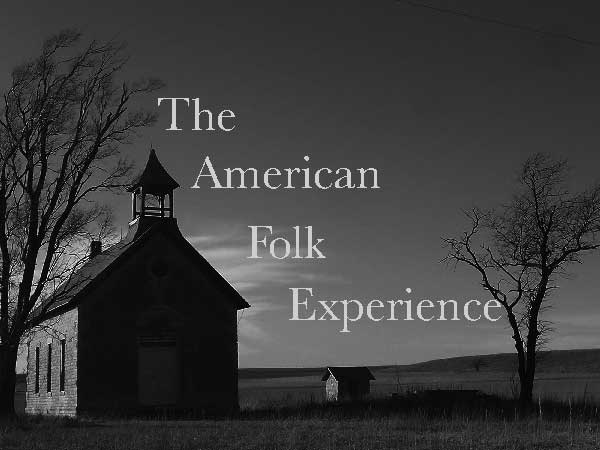
Performances, Workshops, Resources & Recordings
The American Folk Experience is dedicated to collecting and curating the most enduring songs from our musical heritage. Every performance and workshop is a celebration and exploration of the timeless songs and stories that have shaped and formed the musical history of America. John Fitzsimmons has been singing and performing these gems of the past for the past forty years, and he brings a folksy warmth, humor and massive repertoire of songs to any occasion.
Festivals & Celebrations Coffeehouses School Assemblies Library Presentations Songwriting Workshops Artist in Residence House Concerts Pub Singing Irish & Celtic Performances Poetry Readings Campfires Music Lessons Senior Centers Voiceovers & Recording
““Beneath the friendly charisma is the heart of a purist gently leading us from the songs of our lives to the timeless traditional songs he knows so well…”
Join Fitz at The Colonial Inn
“The Nobel Laureate of New England Pub Music…”
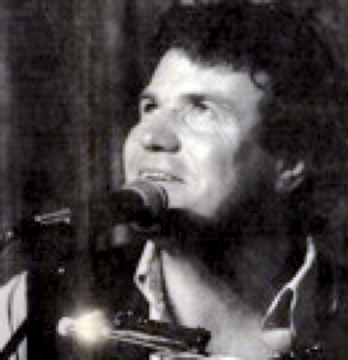
On the Green, in Concord, MA Every Thursday Night for over thirty years…
“A Song Singing, Word Slinging, Story Swapping, Ballad Mongering, Folksinger, Teacher, & Poet…”
Fitz’s Recordings
& Writings
Songs, poems, essays, reflections and ramblings of a folksinger, traveler, teacher, poet and thinker…
Download for free from the iTunes Bookstore
“A Master of Folk…”
Fitz’s now classic recording of original songs and poetry…
Download from the iTunes Music Store
“A Masterful weaver of song whose deep, resonant voice rivals the best of his genre…”
“2003: Best Children’s Music Recording of the Year…”
Fitz & The Salty Dawgs Amazing music, good times and good friends…


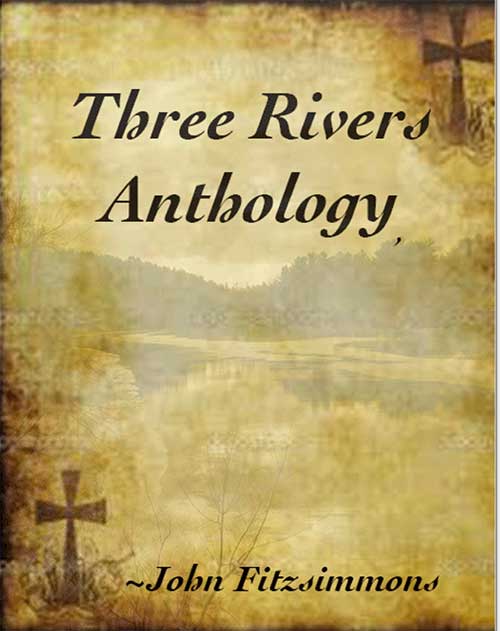
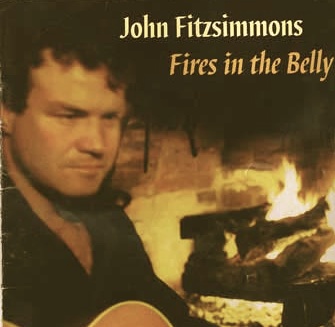
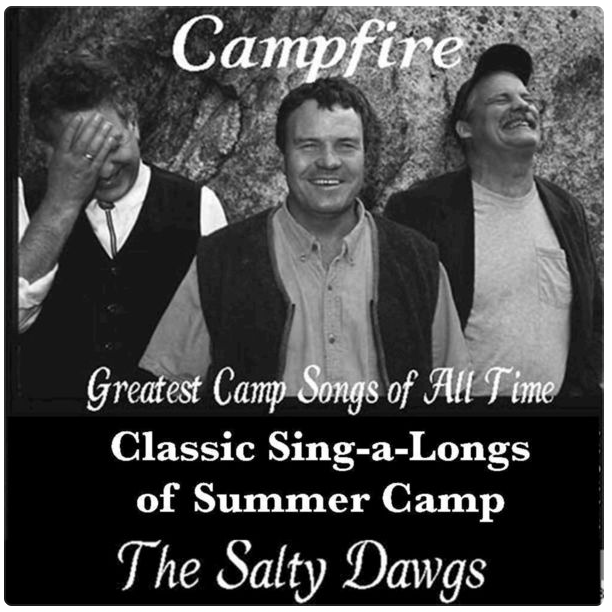
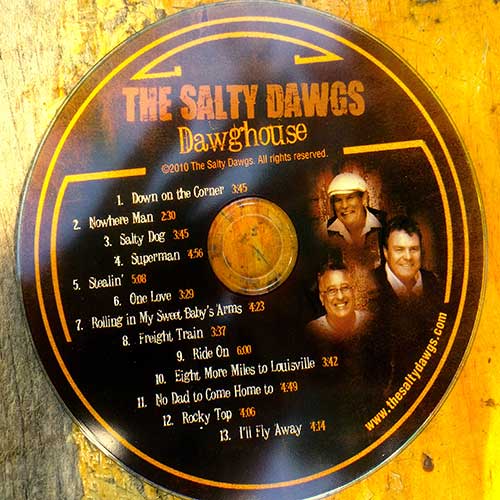
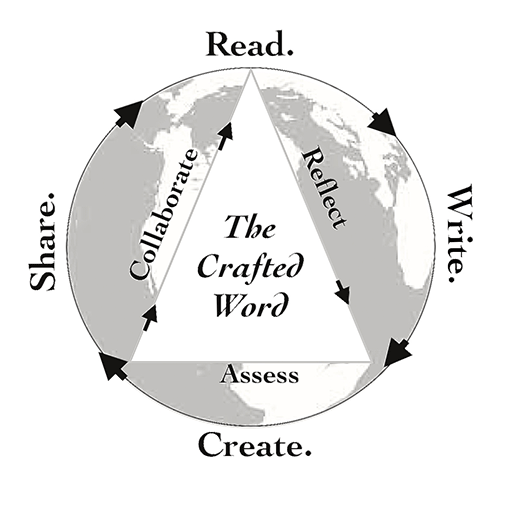


0 Comments